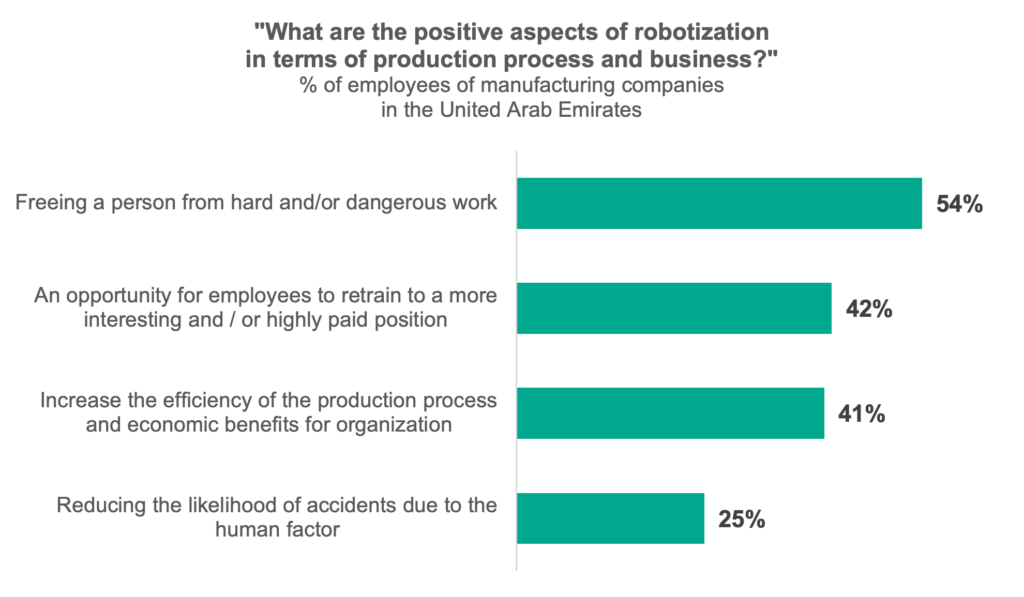AI use is on the rise, which poses a risk to the existence of many jobs across regions. Recently the ChatGPT bot was made available to the public – it can maintain a coherent conversation, explain complex scientific concepts, artistically translate texts between languages, and much more.
Other types of robots have been among people for years, washing cars, delivering orders, sorting goods in warehouses, delivering pills to patients, and doing assembly works at plants. According to Kaspersky research, there are concerns among employees in the UAE in regards to robots and automation systems used by companies. Half (50%) of the employees are afraid of losing their job to robots. At the same time, many employees see the positive aspects that robotization brings to them.
Most often the respondents noted the benefits of automation to employees’ health: 54% said that robots free employees from doing physically demanding or dangerous work. 41% stated that robots increased the efficiency of production processes and brought economic benefits to the organization. 42% believed robotization opened opportunities for employees to retrain for more interesting and higher paid positions, and 25% said it reduced the likelihood of accidents due to the human factor.

Kaspersky conducted a study to learn the opinion of employees of manufacturing companies and other large organizations around the world about the consequences of automation and increased use of robots. The goal was to see what employees think about the security of robots and automated systems. The survey included respondents from Saudi Arabia, UAE, Turkey, Egypt, and South Africa.








No Comments so far
Jump into a conversationNo Comments Yet!
You can be the one to start a conversation.